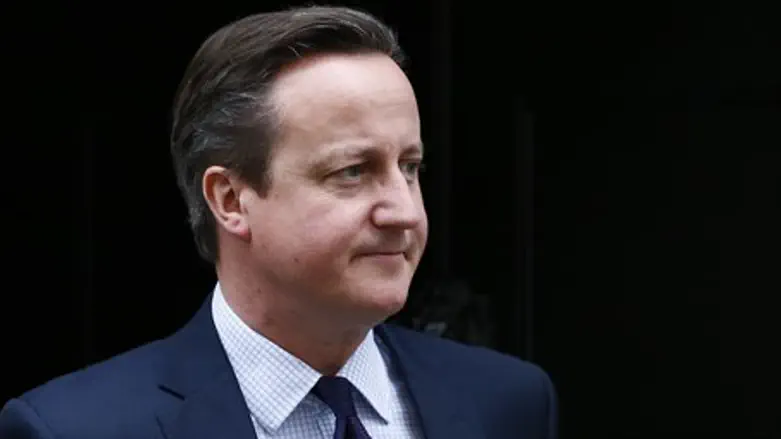
British Prime Minister David Cameron on Thursday argued his case to MPs for Britain to join air strikes on Islamic State (ISIS) targets in Syria, amid signs that opposition was weakening after the Paris attacks, AFP reports.
In 2013, Cameron suffered a defeat in parliament when MPs voted against British military action against the Assad regime in Syria to deter the use of chemical weapons.
But last week, Britain’s Defense Secretary said Britain should "think again" about taking part in air strikes on ISIS jihadists following the attacks in Paris.
On Thursday, the British Prime Minister told the House of Commons that Britain should not "wait until an attack takes place here" before acting, adding it was "morally" unacceptable to be "content with outsourcing our security to our allies".
A vote is expected to be held early next week.
While the numbers are tight, MPs look set to approve the move, meaning the first British air strikes on Syria could come within days.
"If we won't act now when our friend and ally France has been struck in this way, then our friends and allies can be forgiven for asking: 'If not now, when?'" Cameron said, according to AFP.
In an unusual move, French Defense Minister Jean-Yves Le Drian made a public appeal for Britain to join the fight against ISIS in Syria, writing in Britain's Guardian newspaper that British help was needed to "win this war".
The prime minister has stepped up pressure on MPs to vote for strikes since ISIS claimed responsibility for the November 13 attacks in Paris, which killed 130 people.
Britain is involved in air strikes on ISIS targets in Iraq but has so far shied away from joining action in Syria. Many MPs are still troubled by the memory of unpopular British interventions in Iraq, Afghanistan and Libya.
The prime minister still faces a fight in the coming days to persuade enough MPs to support joining air strikes, particularly as his center-right Conservatives have a Commons working majority of only 17.
The leader of the main opposition Labour party, Jeremy Corbyn, reiterated his rejection of military action, writing in a letter that Cameron "has been unable to explain the contribution of additional UK bombing".
"The prime minister did not set out a coherent strategy, coordinated through the United Nations, for the defeat of ISIS," he said.
However, some Labour MPs say they could support the move.
The Scottish National Party, the third largest party in the Commons, will vote against the move.
AFP contributed to this report.
